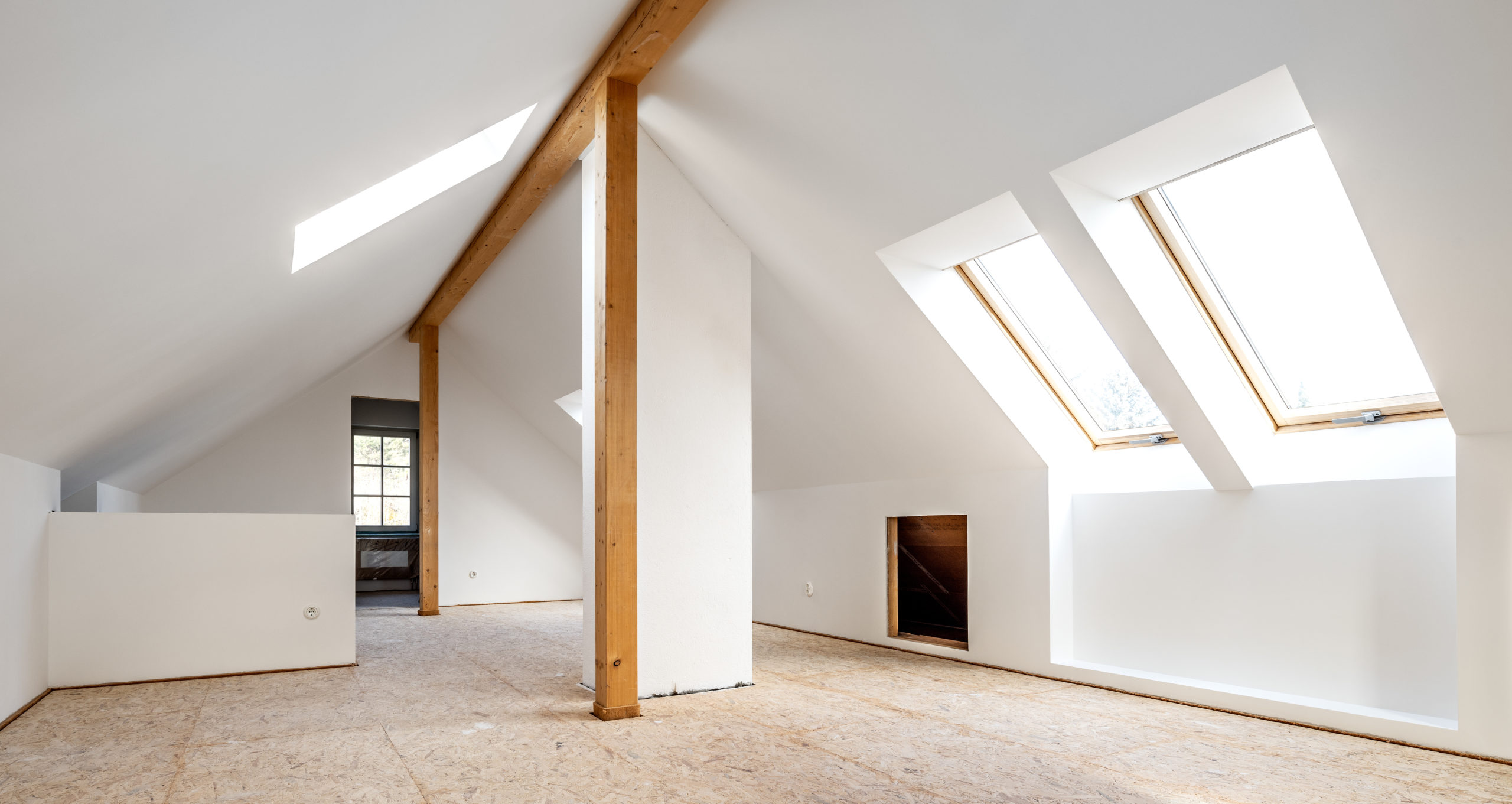Blog
- Details
- Hits: 634
Essential Tips to Help You Rent Out Your Home

Considering renting out your home but not quite sure where to get started? You’re in the right place. With years of experience in matching landlords with tenants, we’ve got the lowdown on all the essential steps you need to take to rent out your home. The team at Warren Powell-Richards have put together our top tips for homeowners who are now thinking of renting out their home:
First things first: research, research, research
As with most things, renting out your home should start with lots of research!
Start by checking out other properties being let in your area to see what’s on the market. What kind of features do they have? How much rent are they being advertised for?
We can help you greatly in this regard, allowing you to get a good idea of the local rental market and help you feel prepared.
Find yourself a great letting agent (Hint: we can help!)
This is an essential step that can make or break how smoothly the letting process goes.
If you’d like expert help with the letting process, take the time to find yourself a capable local letting agent. Do your research online and check out customer testimonials and online reviews.
We recommend getting quotes from at least three local letting agents and having a face-to-face meeting or video call with them all before you decide to entrust them with your property.
We would love you to choose Warren Powell-Richards to help you let your property, but we also understand that it’s essential you get a good fit. We are happy to discuss your requirements, and you can book an appointment with us on 01483478200 for an informal chat!
Not quite sure why you might need a letting agent? Here’s how we can help:
Advise you on how much rent to charge
Market the property for you
Hold viewings and show prospective tenants around
Draw up tenancy agreements
Deal with any property maintenance and repairs directly with the tenant on your behalf
Most letting agents will charge around 10% of your rental income for this service. Which brings us on to our next point…
Do the maths
Before you commit to renting out your home, take some time to weigh up the costs to see whether it will be worth it financially. You can do this once you’ve researched the market and spoken to us to get a better understanding of how much rent you should charge. Factor in tax, agent fees and any other costs involved in maintenance and management to figure out how much you’ll actually be left with.
Ask yourself: will this figure cover your mortgage payments and leave you with a little extra to justify the time and effort spent letting your property? You should also be left a little extra for any ‘in case of emergency’ funds.
Inform your mortgage lender
Once you’re sure it makes financial sense to rent out your property, follow the terms of your mortgage contract and let your mortgage provider know.
It’s easily done, just discuss a ‘consent for lease’ with them and once approved you’re free to start letting.
Arrange your landlord insurance
If you already have an insurer for your house, inform them of your decision to rent out your property. They may need to change your existing insurance policy to reflect that there will now be tenants living there.
Protect your property and your investment further by sorting out landlord insurance. Some landlord insurance policies will cover you in case of missed rental payments. Please ask us for recommendations if you’re not sure where to find the best policy.
Prepare your property
Once you’ve done all your research, worked out your numbers and hired a reputable letting agent, it’s time to shift your focus back to the property itself. Before any tenants move into your house, there are a few vital preparation steps to take. These include the following:
Deciding whether you’ll be including furniture or renting out an unfurnished home. This is important to clarify early on in the process as some tenants are only looking for furnished homes.
Making sure any required maintenance checks and repairs are carried out before your tenants move in to avoid inconveniencing them.
Removing any items or pieces of furniture that could easily be damaged – there’s no point putting yourself through the stress of leaving them there!
Checking that all appliances are working and investing in any essentials that could sweeten the deal for potential tenants.
Giving your property a little spruce up and a fresh lick of paint if needed. Staging your house with appealing decor can make a huge difference in how quickly it comes off the market.
Interested in letting your property? For expert rental advice, please contact our team of professionals at Warren Powell-Richards.
- Details
- Hits: 315
5 Tips to Make Your House Look Larger

For many people, buying a bigger house or building an extension is an unaffordable dream, but being short of space doesn’t mean you have to feel squashed in your home.
Here are 5 tips to help you make your house look larger.
- Declutter
Nothing makes a room feel smaller than unnecessary clutter. Whether it’s paperwork and magazines lying around, or kids’ toys strewn across the living room floor, a messy room always feels smaller than it actually is.
If this sounds familiar then it’s time for a clear-out, and don’t be afraid to be ruthless. Divide all your unnecessary clutter into three categories. Things that just need throwing out, items you can take to the charity shop, and items you can sell to make some extra cash.
Not only will a good decluttering free up some space and make your house look larger, but it’s also great for your mental wellbeing too.
- Brighten Your Rooms Up
Painting your rooms with light, bright colours will automatically make them feel bigger. And by bright, we don’t mean fluorescent yellows and pinks. Just an off white or a pastel yellow will instantly transform a room.
Avoid darker colours and heavily patterned wallpaper, and go for neutral, light and bright colours.
And when it comes to brightening the rooms up it’s not just the walls to consider. Having blinds instead of curtains will take up less space, and you can opt for light fittings with brighter bulbs to really lighten the room up and allow more light to radiate.
- Buy Multi-Functional Furniture
This is definitely the most practical thing you can do to create more space and store away clutter. For example, you could invest in a sofa-bed that can be folded up when it’s not being used, giving you more floor space.
Or you could opt for an Ottoman bed, so you’ve got lots of extra storage space without cluttering the room.
Essentially any furniture that can be folded up or doubled up for storage is likely to be a good investment.
Another tip when it comes to furniture is to avoid items that lie on the floor and buy ones with legs, such as coffee tables and sofas. This allows more light to come in and give the room an airier feel, and it can also double up as extra storage space underneath. Just be careful not to use it as an excuse to add more clutter though!
- Use Mirrors
A couple of well placed mirrors can make a huge difference when it comes to making a room feel bigger.
Choose a range of shapes and sizes and place them strategically throughout your house and you’ll be amazed at the effect they can have.
Because they reflect natural and artificial light, they’ll make any room seem brighter whatever time of day it is, and they’ll give the illusion of making a room feel larger just by being there.
Another tip with mirrors is to place one near a window so it’s reflecting the outside world. This can make a huge impact on a room’s perceived space.
- Arrange Your Furniture to Maximise Space
Large items in the middle of a room are probably the biggest no-no when it comes to maximising your space. Unless of course, there’s plenty of room to get around them.
Keeping large, bulky pieces of furniture against the walls is usually the best thing to do, so you can keep as much floor space free as possible. And be sure to keep pathways around furniture as clear as possible, as squeezing between a bed and a wardrobe for example will only heighten the feeling of being cramped.
Another trick you can use when it comes to furniture is to use shelves over cabinets as much as possible, and the higher up the better. A bulky bookcase will take up a significant amount of space, but if you can put a couple of shelves high up on the wall which will fit all of your books then you’ll be freeing up valuable floor space.
When it comes to furniture, if space is at a premium, then stick to the essentials. While it’s nice to have extra armchairs and fancy floor lamps, ask yourself if they’re actually necessary or just an extra feature that’s nice to have.
The key to making a room feel larger when it comes to furniture, is to keep as much floor space free as you possibly can, especially pathways through rooms.
Still need more space? Warren Powell-Richards are your local property experts. Call us or email This email address is being protected from spambots. You need JavaScript enabled to view it. to chat with a member of our friendly and experienced team.
- Details
- Hits: 295
Do Home Improvements Add Value?

Well, the answer to this question is ….. maybe!
Some might, and some are unlikely to. Some may add to the value, but some may be valuable in other ways. So, here, we at Warren Powell-Richards take a look at whether all home improvements are equal.
We have bags of experience in property in and around the area, so if you need some expert advice on exactly what could add value to your home, just get in touch. Call us or email us at This email address is being protected from spambots. You need JavaScript enabled to view it..
What classes as a home improvement?
To start with, what exactly constitutes a home improvement? This is an interesting one. A new central heating system is undoubtedly an improvement, but chances are that a new system is being installed because the old one isn’t up to the job.
So, yes, it is a home improvement, but it’s not the same as, for example, building a conservatory.
Get a bit lofty
Many people are looking for a home that gives them space. Perhaps a growing family needs a couple of extra bedrooms, or a room is needed to use as a space in which to partake in a hobby or to work.
There’s no doubt that in the right area, the number of bedrooms can help increase the price of your property. You could go up into the loft, making good use of a void, or you might decide to have an extension built.
The thing to consider here though is why you are having the improvement done and what it costs. If it costs you £25,000 to have your loft converted, and it will only add an extra £10,000 to the property, does it make sense? Perhaps not if you’re doing it to sell your home, but it will if you intend on staying there and need the space.
Kitchen improvements
They say that the kitchen is the heart of a home. A tatty, tired-looking kitchen with units from the 1970s may well put people off. If you have a brand new, sparkling kitchen, then you can certainly up the value of your home.
If you don’t want to go the whole way to getting a new kitchen, have you thought about putting new handles on cupboards, painting doors, installing a new worktop? There are alternatives.
Drive up the value
You may be tempted to create space by adding a bedroom, office or playroom by converting the garage. But, put the brakes on and have a think. If you need to, fine. But, think about those who may buy your house when you sell. Are they likely to need a garage? So will you be driving up the value or making your property harder to sell?
By changing the use of the garage, you may be devaluing the price and attractiveness of your home – particularly if you’re in a busy town or city centre where parking is at a premium.
Decorating and landscaping
You’ve chosen some lovely wallpaper. And while you were at the DIY store, you picked up some ideas about landscaping the garden too. But, wait a minute. If you’re decorating or landscaping, you’re probably doing it to your tastes. That’s fair enough, but if a potential buyer comes along and really doesn’t like what you’ve done, you may not be getting any future value out of it – although landscaping may make your home more attractive and so easier to sell.
It’s about the value of kerb appeal!
What’s the added value?
It’s difficult to put a value on home improvements as they vary so much. A bathroom in one house may add £10,000 to a property, but a bathroom at another house that doesn’t match the same quality finish, may add just a couple of thousand. A decent loft conversion could add up to £30,000 to a property, but the profit depends on exactly how much it cost you in the first place.
As you can see from a brief look online, a lot of “value” is based on estimates.
Based on our experience and knowledge of the local property market, we can tell you what your property is worth now, and what it might be worth with a few home improvements.
Warren Powell-Richards are your local property experts. Call us or email This email address is being protected from spambots. You need JavaScript enabled to view it. to chat with a member of our friendly and experienced team.
- Details
- Hits: 367
A Guide to Removals Costs

There is a vast array of criteria to consider when budgeting for an upcoming house move.
Removal costs are often a forgotten expense. However, it is essential to account for them, preventing any nasty surprises.
How do Removal Companies Charge?
There are a variety of ways companies bill for their services. Most will charge hourly, which means the quantity of items you require moving is generally a good indicator of how much the job will cost.
Try to give the removals company the most accurate description of your home and belongings to obtain the best quote.
No two homes will look the same, and basing your move on the number of bedrooms can mean you estimate completely wrong. Underestimating the number of items you need moving will only lead to a larger than expected bill, a frustrated workforce, and a more stressful process.
Which day of the week you chose to move will affect the cost. Fridays and Saturdays are generally the busiest, and therefore the most expensive day to move to a new house.
Beware of simply choosing the company with the lowest rates. Remember, they are transporting your possessions, and the last thing you want is any hiccups on the final hurdle of the moving process.
Long Distance Moves
Most removal companies will charge a minimum fee, equating to their rate for two hours. However, this flat fee is generally not a cause for concern. Even the shortest of moves usually take longer than this when loading and unloading the van is considered.
Long-distance moves are generally much more expensive due to the time required to drive between properties. You may, therefore, be tempted to hire a van and move yourself. However, by doing so, you could be adding a great deal of unwanted and unnecessary stress to your day.
Packing Services
You may also choose to hire the removal company to pack and unpack your belongings. This can further help reduce stress in the lead up to the move.
However, this service comes at a cost. Expect to pay anywhere from £150 for a one-bedroom property towards the £500 mark for a three-bedroom home.
Although this is an extra expense to add to the process, it can be worth it if you lack the time or inclination to get involved with these tasks. You will be impressed with the efficiency with which the professionals work.
Be sure to discuss whether materials (packing tape, boxes, bubble wrap) will be provided by the team when calculating the expense.
Many removal companies will also offer a dismantling service. Perfect for any flat pack furniture that you wish to rebuild in your new home, helping with the logistics of moving between rooms. These services generally start from around £100, depending on the item and the company.
Special Care Items
If you have any particularly delicate or precious items you want to be handled with more care, you will pay more for the removal company to deal with them.
This may include using specially designed crates for expensive electronics such as televisions and computers or carefully wrapping any delicate art pieces.
Extra Equipment Required
The removal company might need to use extra equipment for any particularly heavy or challenging items you own. Some pieces may not fit up or down the stairs, meaning they have to be removed through windows. This process will undoubtedly add to the total bill.
Delays
Unfortunately, delays can occur when it comes to moving home. If your move is delayed by a matter of hours, there may be a waiting charge to pay to the removal company to cover the time they have lost.
If your move is delayed to a completely different day, there may be a cancellation fee payable. Consider other factors that may be included, such as the price of storing items or funding accommodation for yourself should the move become disjointed.
Insurance
Insurance is one of the most significant benefits of choosing a removal company over attempting the task yourself. Good companies will offer a range of insurance plans, starting from as little as £20, ranging up to insurance covering you for £50,000 worth of damages.
Insurance is always recommended to give you peace of mind during the moving process.
Final Thoughts on Removal Costs
It is tough to place an accurate figure on how much your move will cost. There are many factors that will need to be considered, including the number of items you have, the level of support you require and the distance you are moving. So it’s best to do your research and gain quotes from multiple companies.
Warren Powell-Richards are your local property experts and are in contact with some fantastic, reliable removal companies.
Call us or email This email address is being protected from spambots. You need JavaScript enabled to view it. to chat with a member of our friendly and experienced team.
- Details
- Hits: 336
4 Easy Ways to Make Your Home Office More Comfortable

Home offices are slowly becoming less of an ‘added bonus’ and more of a ‘must have’ for many properties on the market today.
With remote working on the rise and more people spending their days indoors, a home office needs to be a calm, constructive and comfortable space to work in.
In this article, we’ll share our top four easy ways to make your home office more comfortable when you’re working from home every day.
- Invest in a Good Chair
This is so important! If you’re feeling uncomfortable in your home office, your choice of chair could be the issue. Investing in a high-quality, ergonomic chair can make a world of difference to how supported and relaxed you feel throughout your working day. It could even make you more productive!
- Upgrade Your Desk
Space can be another reason why your home office doesn’t feel comfortable. If you have a small desk that makes everything feel cramped, this could be affecting how positive you feel when working in your office.
If you’ve got the space, upgrade to a bigger desk more suitable for your needs. Make sure you choose a style big enough to fit all your essential equipment on without feeling cramped.
- Tailor the Lighting
Is your home office too dark? Or too bright?
A healthy dose of natural light is ideal for a home office to keep you feeling awake and productive. But too much sunlight can cause glare on your screen making it difficult to work without squinting!
If this sounds like a familiar issue, think of ways to make your home office comfortable all year round. Invest in a pair of light-filtering curtains, day and night blinds or a good lamp. Any of these things can help tailor the lighting in your home office to suit your needs and make you feel more comfortable.
- Regulate Temperatures
Being too hot or too cold in your home office can undoubtedly affect how comfortable you feel. Regulating temperatures can be tricky, especially if your home office is in a small room that gets very hot, or is in an open-plan area that gets very cold! But an optimum temperature will make a huge difference to how comfortable you feel.
Final Thoughts
Making a home office more comfortable will mean different things for different people but our simple tips will give you a better idea of how to make your space more pleasant for you to work in.
If you’re interested in learning more about how a good home office can affect the resale value of your property, Warren Powell-Richards are your local property experts, and we’d love to provide a valuation of your home.
Give us a call today or send us an email at This email address is being protected from spambots. You need JavaScript enabled to view it..





ALTON | FARNHAM | GODALMING | GRAYSHOTT | HASLEMERE | LONDON